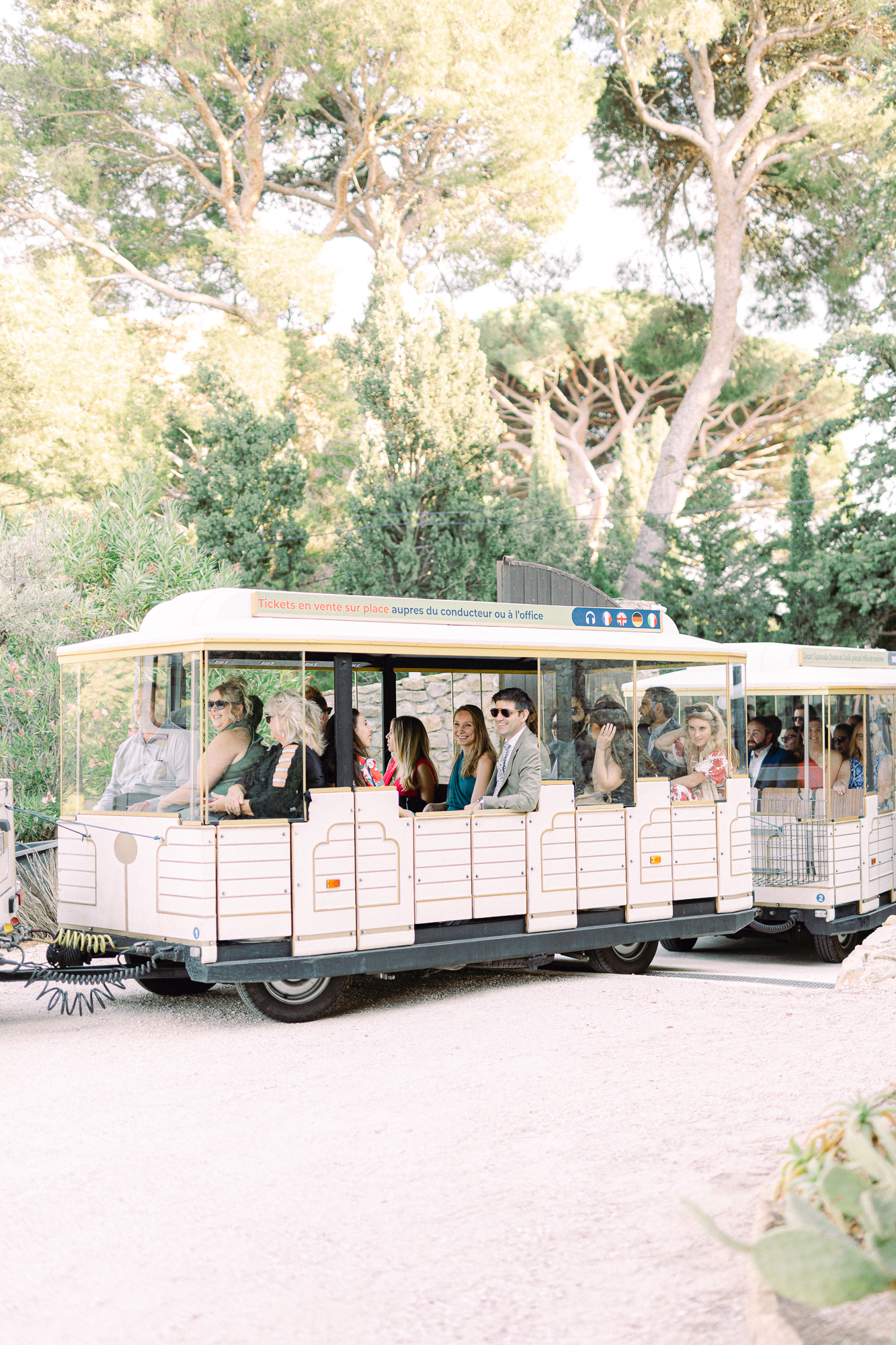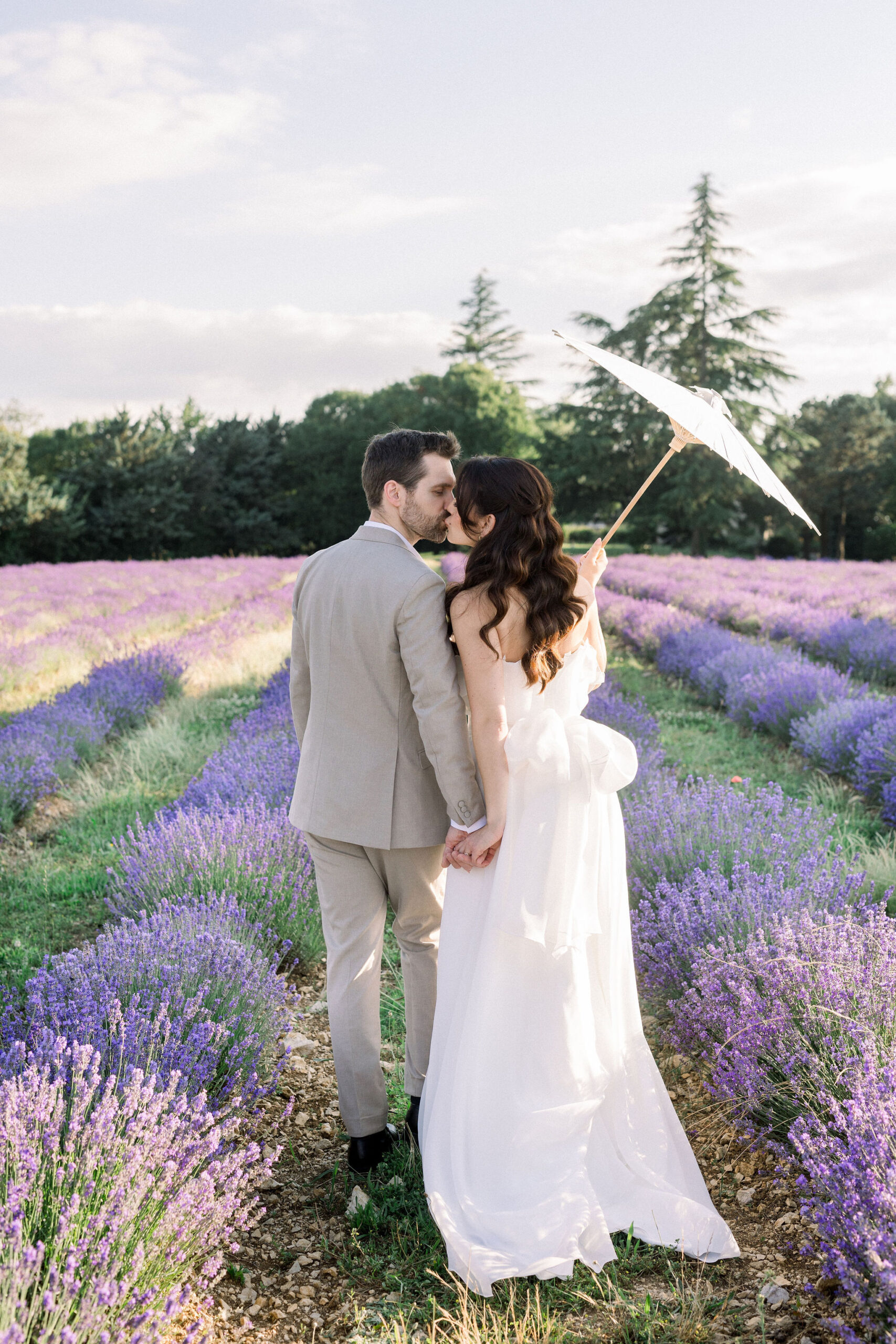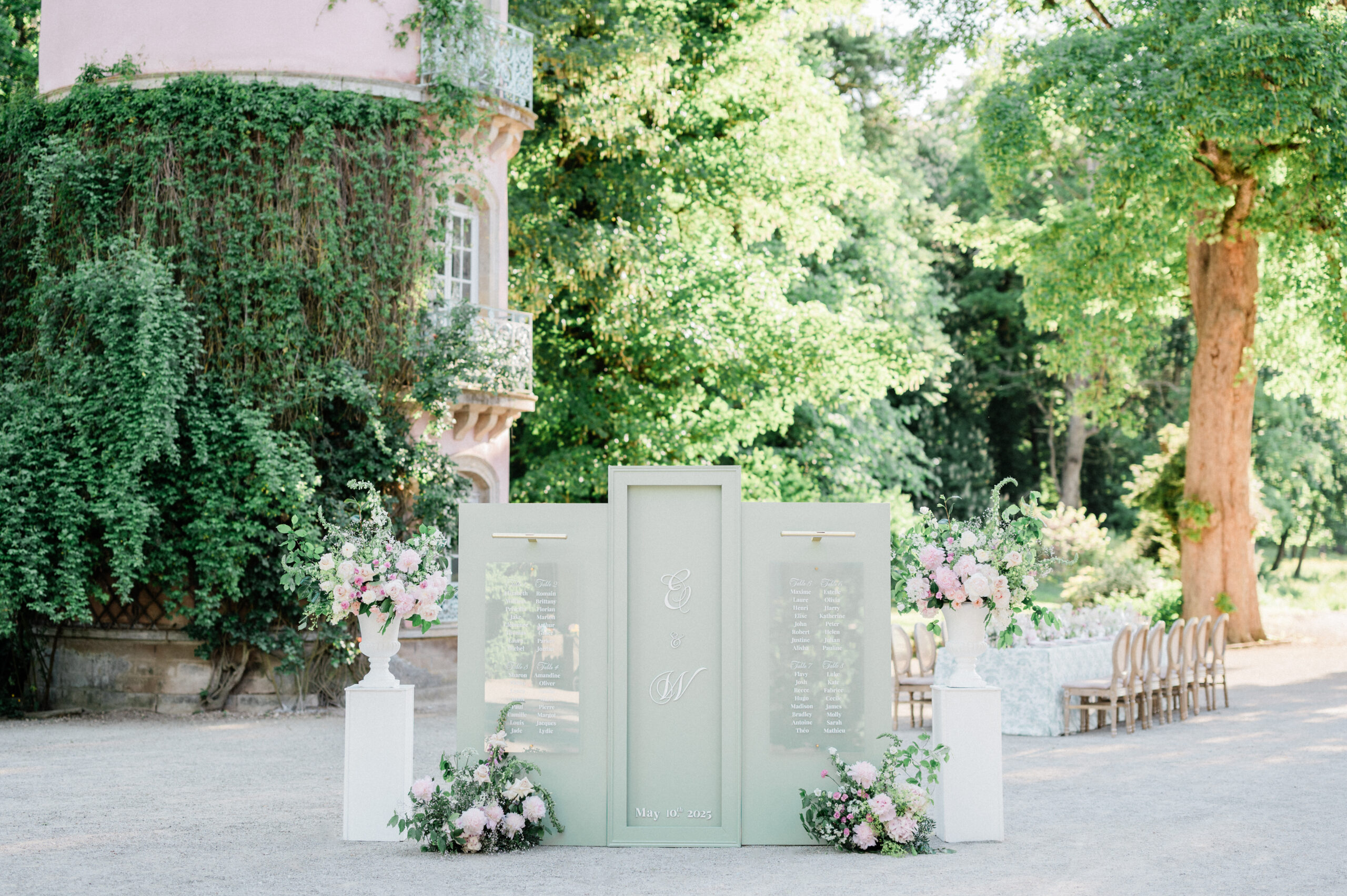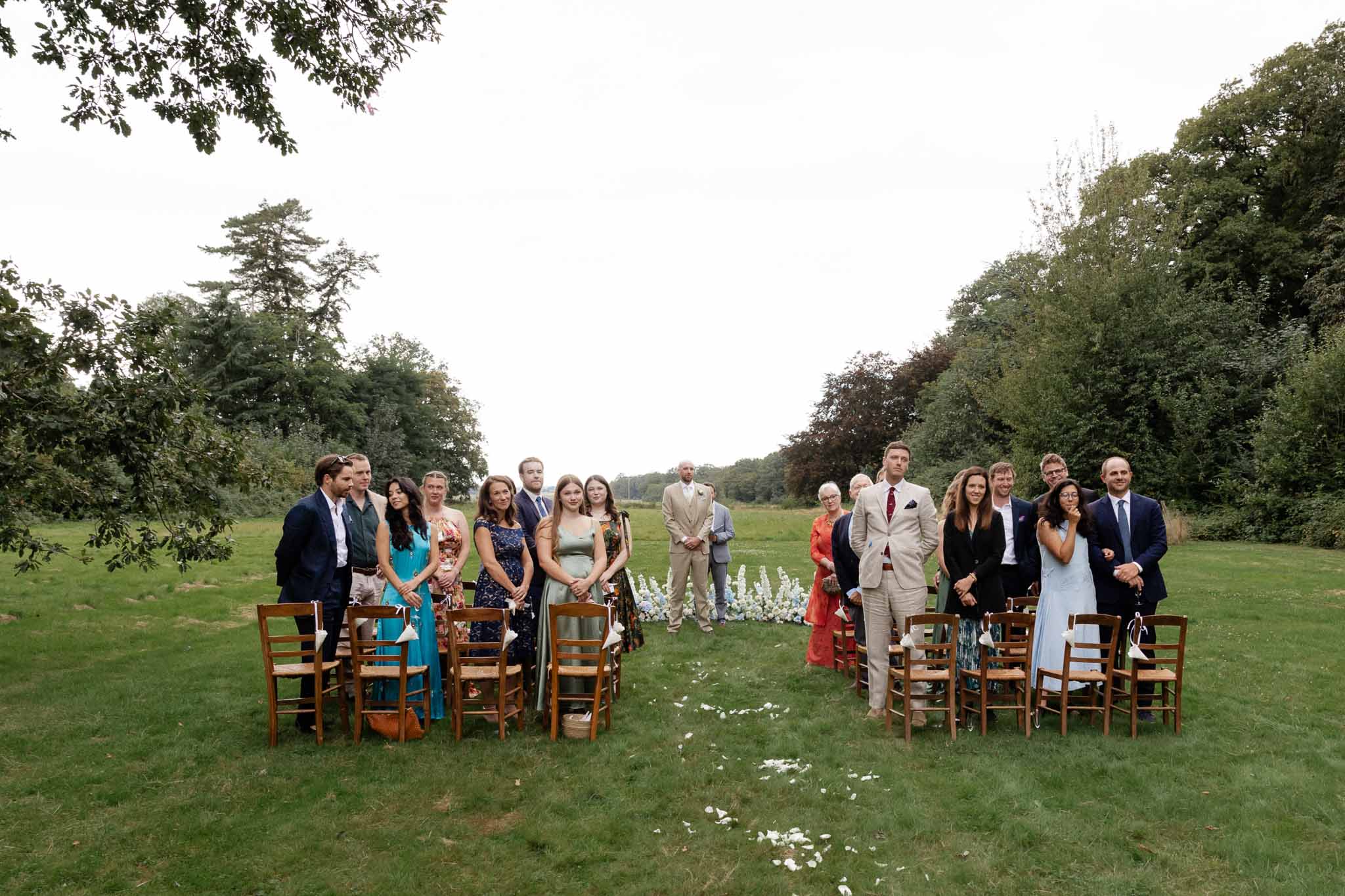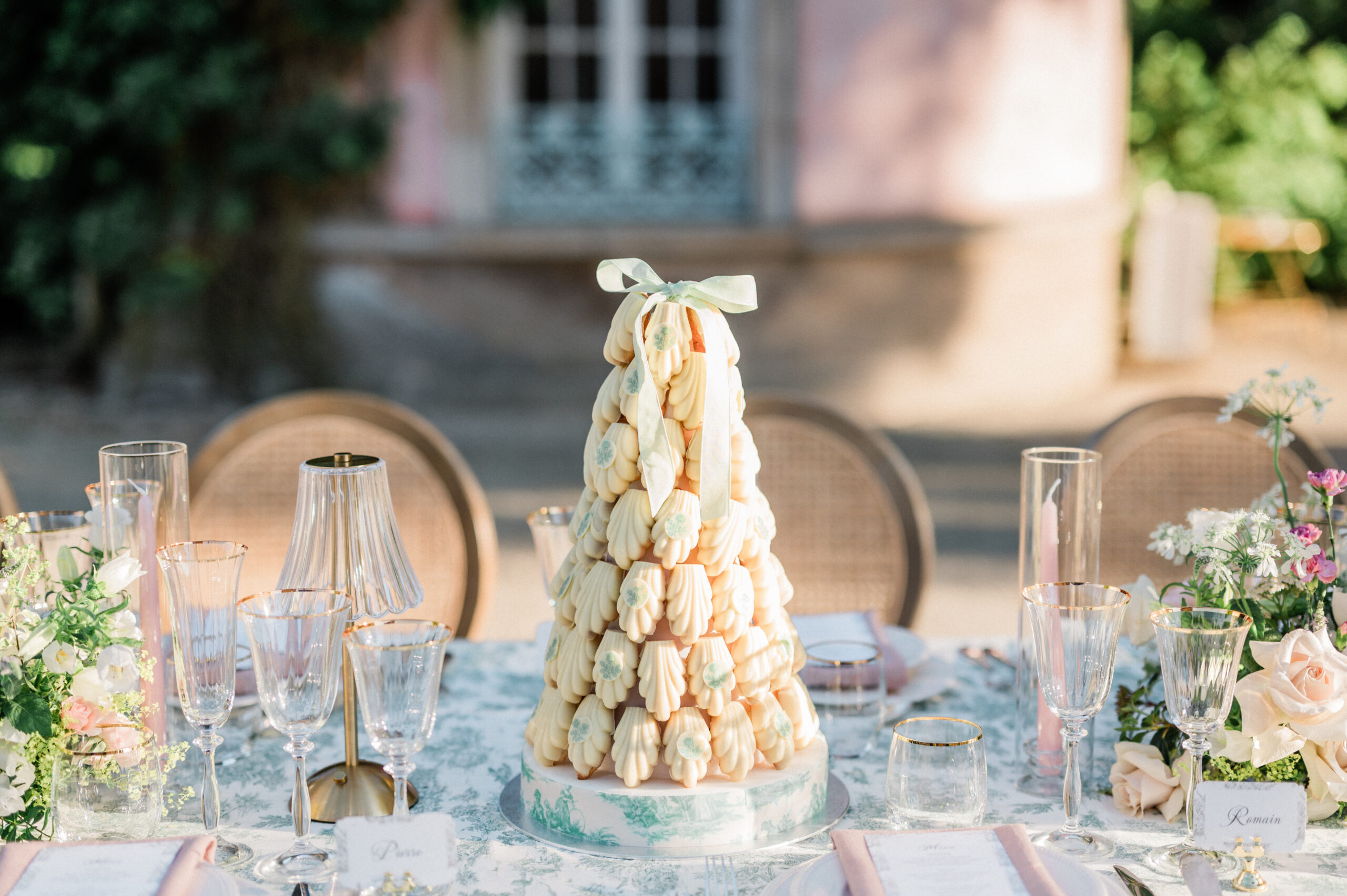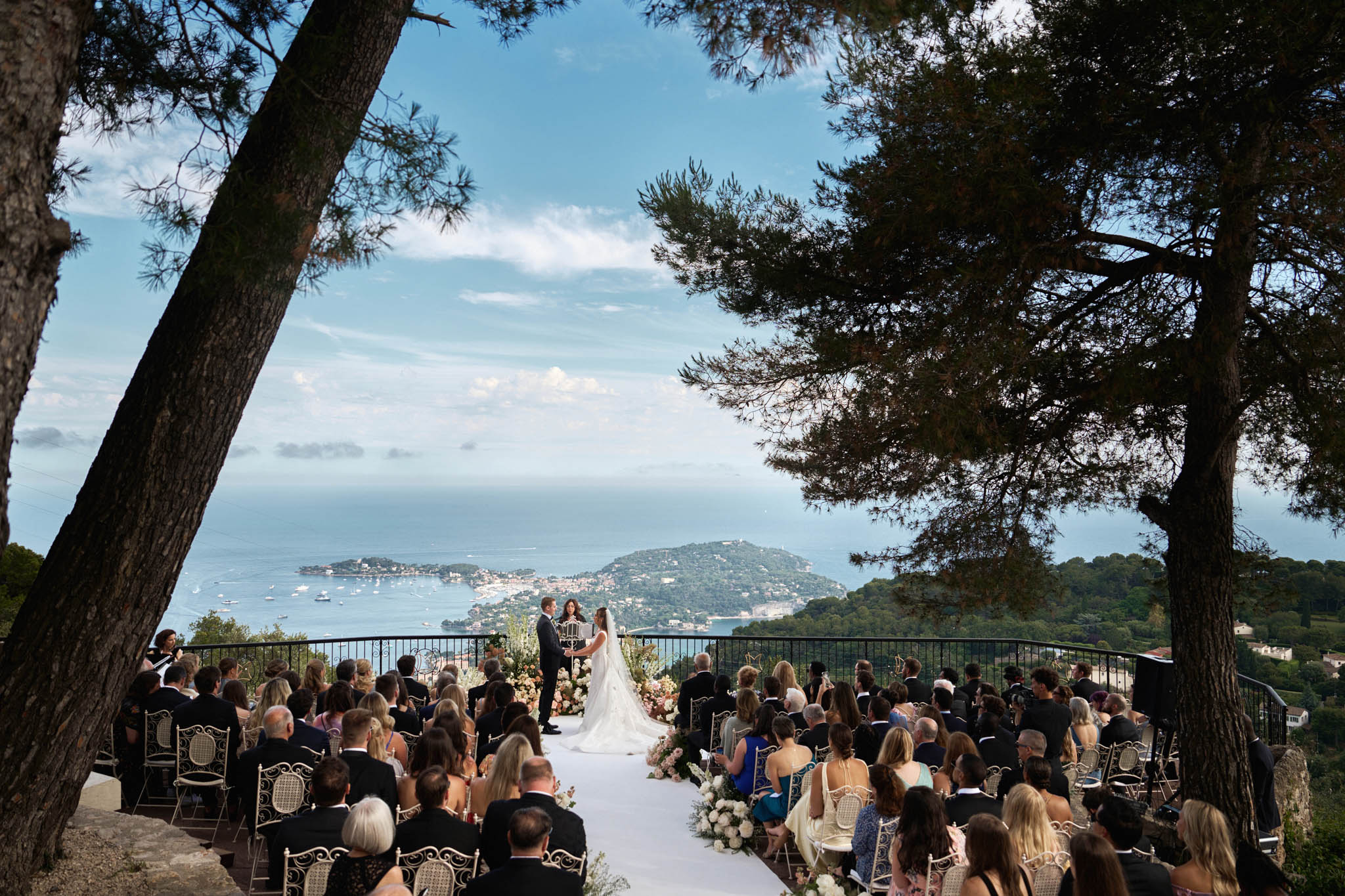When planning a destination wedding in France, one of the most thoughtful things you can do for your guests is to provide clear, timely, and comprehensive travel information. For many, attending your wedding will mean navigating international flights, unfamiliar locations, new language and potentially a new culture—all while preparing to celebrate your love story. Providing travel information for wedding guests not only helps ease the stress of travel but also makes them feel truly welcomed and cared for from the moment they receive your invitation.
From save-the-dates and RSVPs to transportation and packing tips, each piece of guidance you offer becomes part of a smooth and memorable experience. The goal? Help your guests arrive informed, prepared, and ready to enjoy every moment of your French celebration.
Key Insights
- Send save-the-dates early to give guests time to plan their destination wedding travel.
- Use a wedding website to share maps, schedules, and live updates.
- Provide clear travel info—including airports, visas, and transfers.
- Suggest nearby accommodation and explain local transport options.
- Share a full wedding itinerary with times, locations, and dress codes.
- Recommend local attractions, restaurants, and support services like salons.
Communicating Destination Wedding Details
Save-the-Dates and Invitations
Send save-the-dates 8 to 12 months before your wedding to give guests time to plan, especially for international travel. Follow up with formal invitations 3 to 4 months out, including destination-specific details like the nearest airport, hotel options, and the length of your celebration.
Wedding Website
A wedding website acts as your guests’ go-to resource. It should include venue addresses, maps, timelines, packing suggestions, and helpful links. Bonus: it allows for real-time updates if any plans shift, which is invaluable for a wedding abroad.
Invitation Wording Tips
Use your invitations to set the tone—romantic, elegant, or playful—while also being clear about key logistics. Specify who is invited (adults only or family-friendly), outline attire expectations, and make RSVP instructions simple. Clear wording avoids confusion and sets expectations early.
Essential Travel Information for Wedding Guests
Once your guests have RSVP’d, the next step is helping them arrive with ease and confidence. For a destination wedding in France—whether in the rolling hills of Provence, a Parisian château, or a seaside village in the Côte d’Azur—clear travel guidance will make all the difference. Many guests may be unfamiliar with international travel or the nuances of French transportation and customs, so this section ensures they feel supported every step of the way.
Venue and Location Details
Share the full address of your venue, including street, city, region, and postal code, along with a contact number for the venue or a point person. In France, rural venues or estates can be hard to find by name alone, so include a Google Maps link or a printable PDF map. This is especially helpful if your guests are navigating French country roads, roundabouts, or one-way village streets by rental car or taxi.
Travel and Arrival
List the nearest international airport(s)—such as Charles de Gaulle (CDG) for Paris, Marseille (MRS) for Provence, or Nice (NCE) for the French Riviera—and recommend airline routes from your guests’ home countries. Remind guests that passports must be valid for at least six months beyond travel dates, and that starting in 2025, many non-EU travelers will need to complete the ETIAS travel authorization before entry. For arrivals, suggest convenient transfer options like pre-booked private drivers, SNCF trains, or ride apps like Bolt or Free Now, which are more common than Uber in some regions.
Local Area Info
France’s climate varies by region, so give guests an idea of what to expect—mild spring rains in the Loire Valley, hot summer days in Provence, or breezy coastal evenings along the Riviera. This helps them pack appropriately, especially if your celebration includes outdoor events. Share tips on local currency (euros are standard), basic French phrases (like bonjour and merci), and customs such as tipping etiquette (not obligatory but appreciated in cafés) or the slower dining pace typical in France, which may surprise first-time visitors.
Accommodation and Transportation
Helping your guests find a comfortable place to stay—and explaining how to get around once they arrive in France—is a key part of destination wedding planning. Whether they’re checking into a boutique hotel in Aix-en-Provence or navigating the backroads of Dordogne to reach your château venue, thoughtful guidance ensures a smooth, enjoyable experience from check-in to celebration.
Where to Stay
List a few recommended hotels near your venue with a range of price points—from charming three-star hotels and chambres d’hôtes (guesthouses) to luxury estates or vineyard stays. If you’ve arranged room blocks or discounted rates, be sure to share booking codes, links, and cutoff dates. French hotels tend to have smaller rooms and earlier check-in times, so let guests know what to expect, especially if wedding events begin soon after arrival.
Alternative Lodging
For guests seeking more space or planning a longer stay, suggest Airbnbs, gîtes (self-catered rural cottages), or villas. These are popular in many French regions—especially in the countryside and along the Riviera. Recommend trusted areas close to your venue and mention if renting a car is necessary, as many rural properties may not be walkable or accessible by public transport.
Getting Around
Transportation varies widely depending on your location in France. In cities and large towns, guests can rely on trains, trams, and ride apps like Bolt or Free Now. In more remote areas, rental cars are often essential. If you’re offering shuttle service to and from the venue, provide exact pick-up/drop-off times and locations. Also, clarify parking availability at the venue, as many château and rural properties have limited or unpaved parking areas that should be noted in advance.
See our Guide to Wedding Transportation Etiquettes
Wedding Schedule and Events
Giving your guests a clear picture of what to expect across your wedding celebration ensures they feel prepared and included—especially when traveling abroad. A well-structured itinerary is essential for destination weddings in France, where timelines can span multiple days and locations. From the main event to relaxed welcome drinks or farewell brunches, here’s how to keep everyone in the loop.
Main Wedding Day Info
Share the exact time and location of your ceremony and reception, including addresses and travel time between venues (if separate). In France, ceremonies often start later in the day—typically around 4–5 PM—so help guests plan accordingly. Mention the dress code clearly, especially if it’s a garden party on a lawn, a formal château affair, or a coastal celebration that may call for more relaxed attire. Include a note about shoes if the terrain involves gravel, grass, or cobblestones.
Additional Celebrations
Many destination weddings in France span an entire weekend. If you’re hosting welcome drinks, a casual pool party, winery tour, or farewell brunch, let guests know as early as possible. These extras are part of what make the experience memorable and worth the travel, so be sure to outline times, locations, and dress codes for each event.
Times, Locations, Attire, and RSVP Notes
Include whether RSVPs are needed for specific events outside the main wedding day—especially if there are guest caps or headcounts needed for pre-booked dinners or excursions. You can collect RSVPs through your wedding website and note any dress suggestions, such as “casual chic,” “white attire,” or “walking shoes recommended.” Providing this detail helps guests feel confident and ready for every part of your French celebration.
Packing and Preparation
For many of your guests, a destination wedding in France may be their first time traveling internationally—or their first time packing for a multi-day event abroad. Help them feel at ease by offering thoughtful guidance on what to bring. From outfit planning to local essentials, a few clear suggestions go a long way.
What to Pack
Give guests an overview of what to wear for each event—whether it’s a welcome dinner in a vineyard, a formal château reception, or a relaxed brunch on a terrace. Include details about the expected weather, typical French style, and event dress codes.
Footwear is often overlooked, so be specific. France’s terrain varies: grass for garden ceremonies, gravel or cobblestones at historic venues, and sand on the coast. Comfortable, practical shoes are key—especially if dancing is involved.
Don’t forget swimwear, sunscreen, or hiking gear if you’re planning poolside hangouts or group outings like coastal walks or countryside tours.
Helpful Extras
Remind guests to bring toiletries, prescription medications, and EU-compatible power adaptors (France uses type C or E plugs with 230V supply). It’s also wise to pack over-the-counter basics like paracetamol or motion sickness tablets, as French pharmacies may carry unfamiliar brands.
For guests who want to look their best, recommend trusted local salons or makeup artists for touch-ups before the big day. If families are attending, share info on babysitting services, pharmacies, or grocery shops nearby. These practical tips will help guests settle in and enjoy every moment.
Enhancing the Guest Experience
A destination wedding is more than a single-day event—it’s an opportunity to give your guests an unforgettable travel experience. By suggesting things to do in their free time and offering support throughout the journey, you’ll help them feel like valued participants in a beautiful shared adventure in France.
Local Attractions and Free Time
Encourage guests to make the most of their trip by recommending must-see attractions near your wedding location. In Provence, that might be lavender fields, hilltop villages, and rosé tastings; in Paris, world-class museums and river cruises; in the Loire Valley, majestic châteaux and local markets. Suggest a few restaurants, bakeries, or wine bars, and share your favorite spots for a scenic walk or photo opportunity. Guests will appreciate curated options that match their pace—whether that’s relaxing or exploring.
Support and Updates
Even with careful planning, things change—especially with travel and outdoor events. Let guests know how you’ll communicate last-minute updates. A pinned post on your wedding website, group email, or even a WhatsApp group can work well. Clear communication helps avoid confusion and shows that you’re looking out for their experience.
Setting the Stage for a Stress-Free Celebration
A destination wedding in France is a magical experience—not only for you as a couple but for every guest who travels to be part of it. Providing detailed travel information is more than just practical; it’s a gesture of care that sets the tone for the celebration to come.
By offering guidance on logistics, accommodation, events, and local culture, you help your guests shift from feeling like travelers to feeling like cherished participants. With thoughtful communication and a bit of planning, you’ll ensure their journey is as joyful and seamless as the wedding day itself.



